NARISHAKTI GREEN WAY
- HOME
- NARISHAKTI GREEN WAY
.png)
Nari Shakti Greenway: Empowering Rural Women for Climate-Resilient Livelihoods in Karnataka
Introduction
Since its inception in 2003, MANUVIKASA has been at the forefront of sustainable development, community empowerment, and environmental conservation in Karnataka. Through the generous support of the EdelGive Foundation, we have launched one of our most impactful initiatives—“Nari Shakti Greenway: Nurturing Rural Women for Climate-Resilient Livelihoods in Karnataka.” This project spans three critical districts—Uttara Kannada, Dharwad, and Haveri—and aims to uplift over 20,520 rural women by 2027 through a comprehensive and integrated livelihood development model.
Project Vision and Objectives
The overarching goal of this project is to improve the climate-resilient livelihoods of marginalized women by enhancing access to natural resources, facilitating financial inclusion, promoting skill development, supporting entrepreneurship, and creating employment opportunities—particularly under MGNREGA.
Key objectives include:
- Supporting women through microfinance, SHG strengthening, and financial literacy
- Organizing skill-building programs across tailoring, dairy, agriculture, and digital trades
- Promoting producer collectives such as FPOs for sustainable market access
- Reviving ecological resources through lake rejuvenation, farm ponds, and forest conservation
- Enabling women to access entitlements and social protection schemes
- Creating youth-focused vocational training centers and advanced skilling hubs
Geographical Outreach
The program covers 24 taluks across the three districts. This includes Sirsi, Siddapur, Yellapur, Mundgod, Ankola, Kumta, Haliyal, and Joida in Uttara Kannada; Kalaghatagi, Hubballi, Alnavar in Dharwad; and Hangal, Hirekerur, Shiggaon, and Haveri in Haveri district. These areas represent the Western Ghats, coastal, and semi-arid landscapes of Karnataka—each with distinct social, agricultural, and ecological challenges.
Year One Achievements (April 2024 - March 2025)
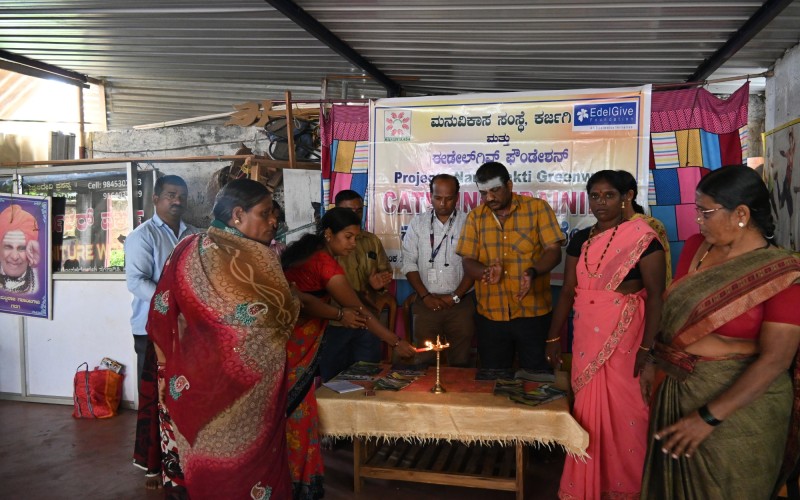
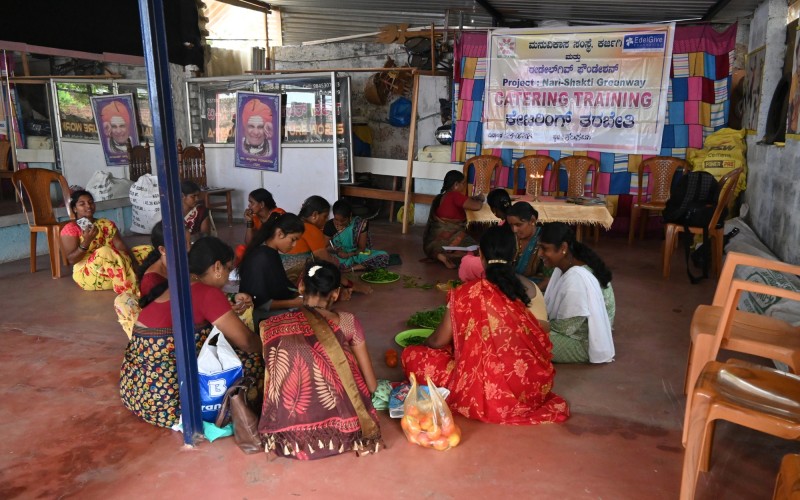
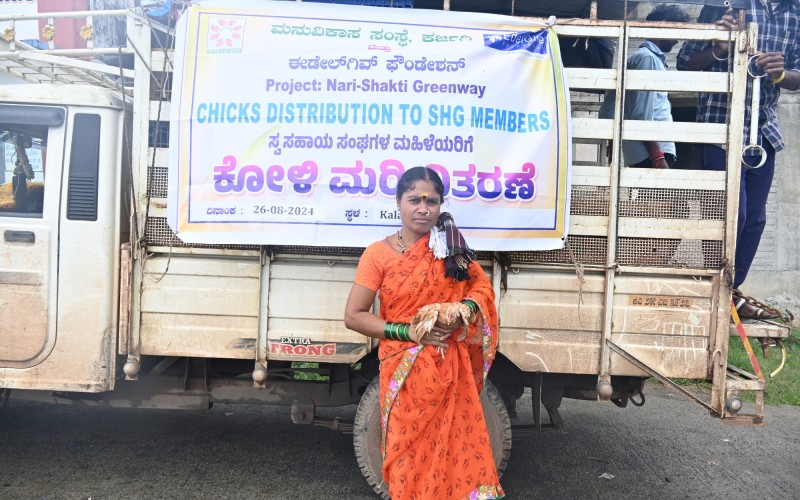
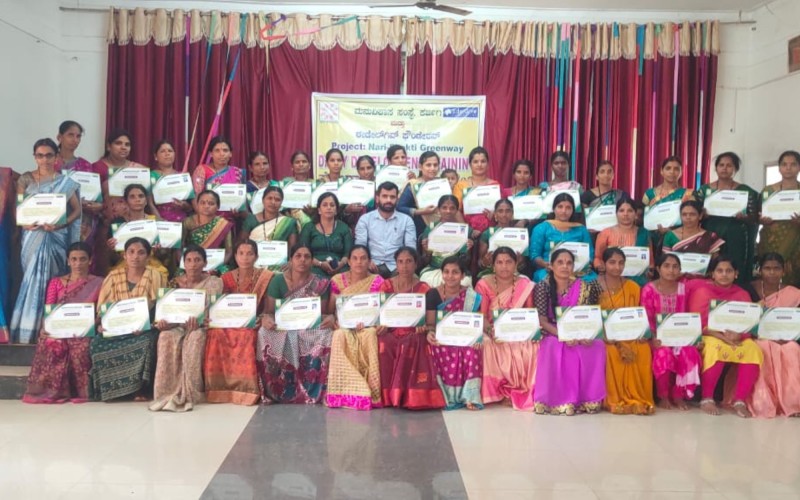
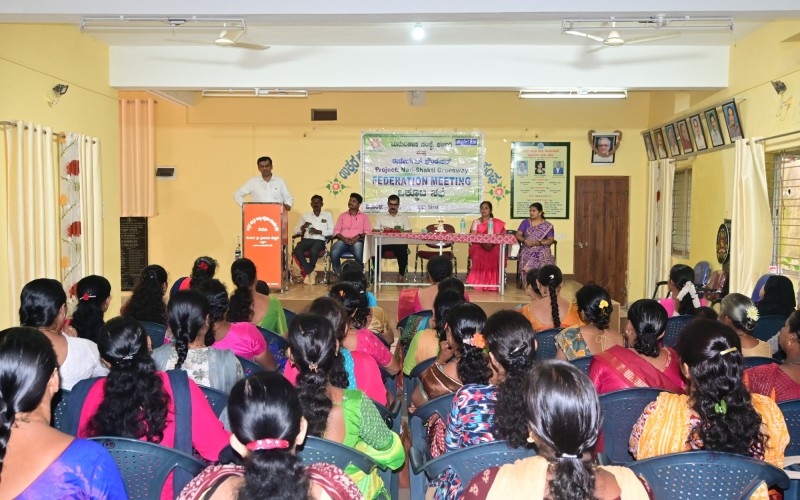
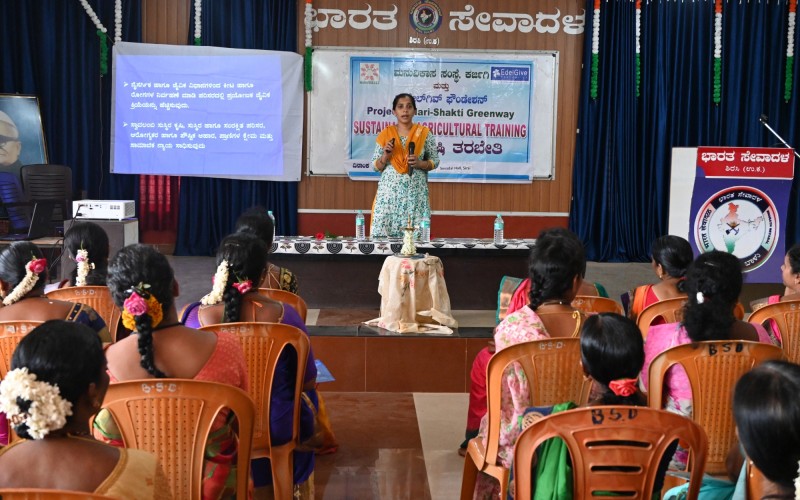
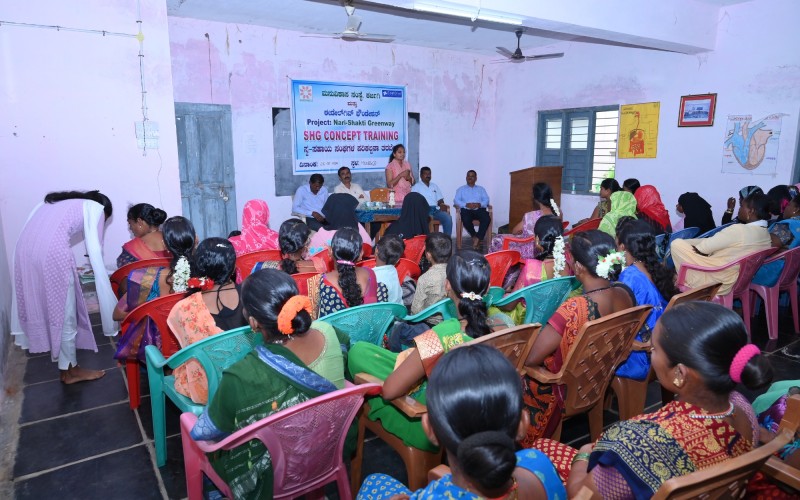
1. Financial Inclusion and Entrepreneurship
- 1,403 women accessed loans worth ₹7.04 crores through banks and SHG federations
- 968 women reported income improvement due to entrepreneurial and livelihood activities
- Loans facilitated through Sanghamitra Rural Financial Services were critical for SHG growth
2. Skill Development
- 1,554 women received formal vocational training in:
- Tailoring (242)
- Catering (129)
- Dairy Development (297)
- Sustainable Agriculture (686)
- Accounts, Video Editing, Shopkeeping & Digital Literacy (200+)
- Launch of Advanced Tailoring Centers and Continuing Learning Centre for youth training in fashion design, marketing, and eco-friendly practices
3. Livelihood Creation through MGNREGA
- 1,726 rural laborers (including 922 women) received wage employment
- 32,184 man-days of labor created with INR.9460187 disbursed
- Development of community infrastructure assets and creation of water retention structures
4. SHG Formation and Institutional Strengthening
- Promoted 367 new SHGs with 4,024 members
- Organized 41 federation meetings, enabling peer learning and leadership building
- Women’s conventions held in Sirsi and Siddapur witnessed participation from over 1,777 women
5. Access to Government Schemes
- 647 women secured benefits such as E-Shram cards, Job Cards, and Jan Dhan accounts
- Focus on leveraging schemes for nutrition, insurance, and maternity benefits
Ecological and Agricultural Impact
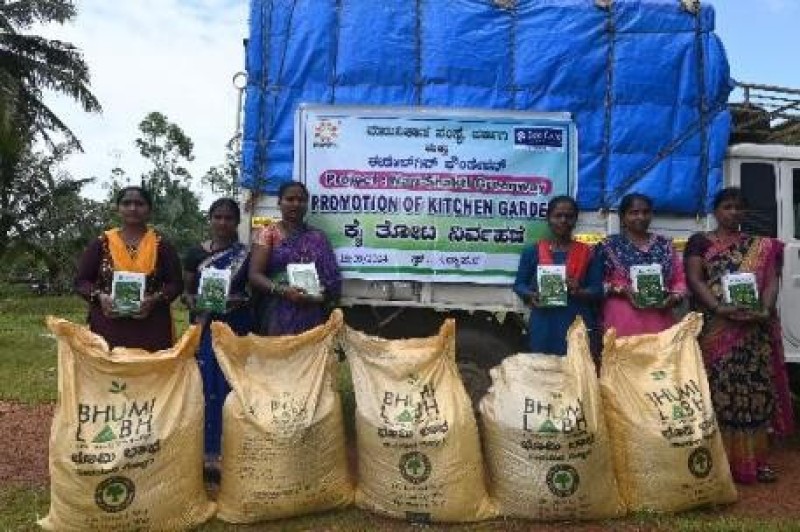
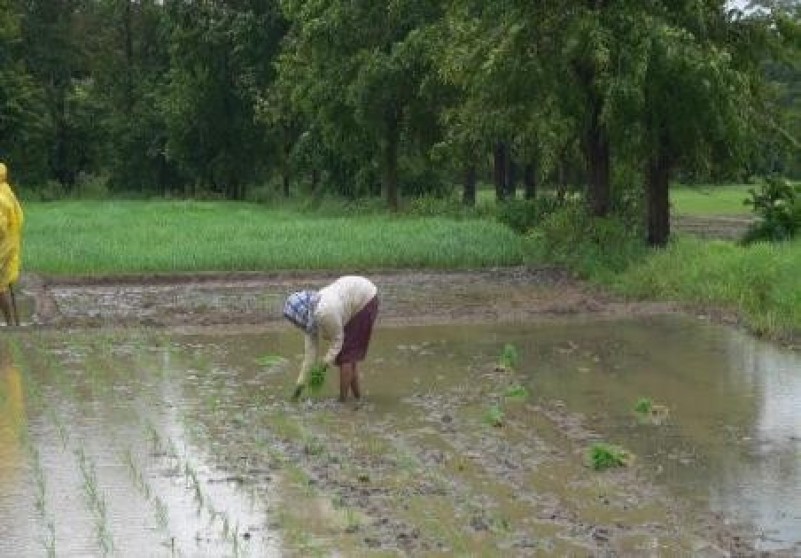
Lake and Farm Pond Development
- 5 large lakes rejuvenated in Uttara Kannada and Haveri districts benefiting 167 farmers
- 30 farm ponds developed, enhancing water security over 35 hectares
Water Harvesting and Community Forests
- 4,000 water harvesting pits constructed in forest areas, ensuring improved biodiversity and groundwater recharge
- Promotion of sustainable farming through SRI paddy cultivation (24 hectares) and seed banking
Organic Agriculture and Kitchen Gardens
- Over 150 women farmers adopted organic agricultural practices
- Kitchen gardens supported for 150 families with training, seeds, and organic manure, improving nutrition and reducing household expenses
Enterprise Promotion and Resource-Based Livelihoods
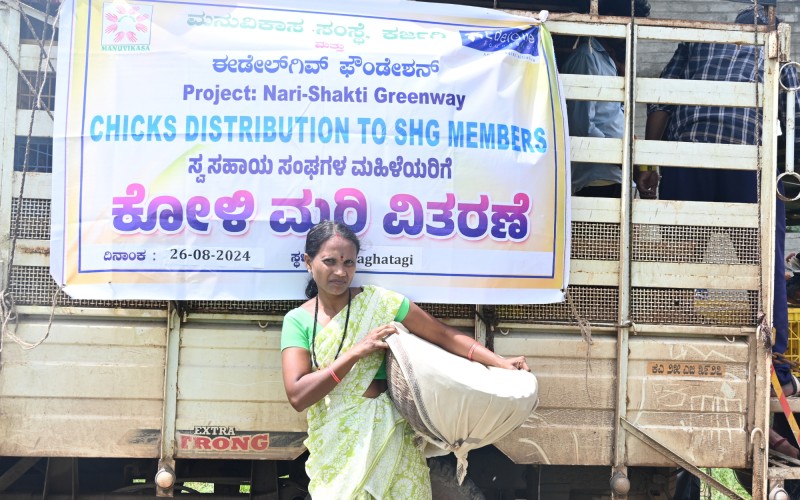
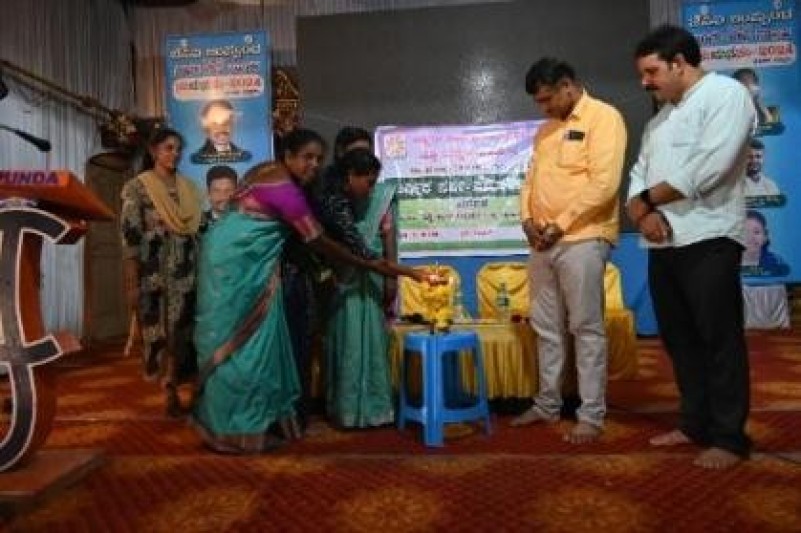
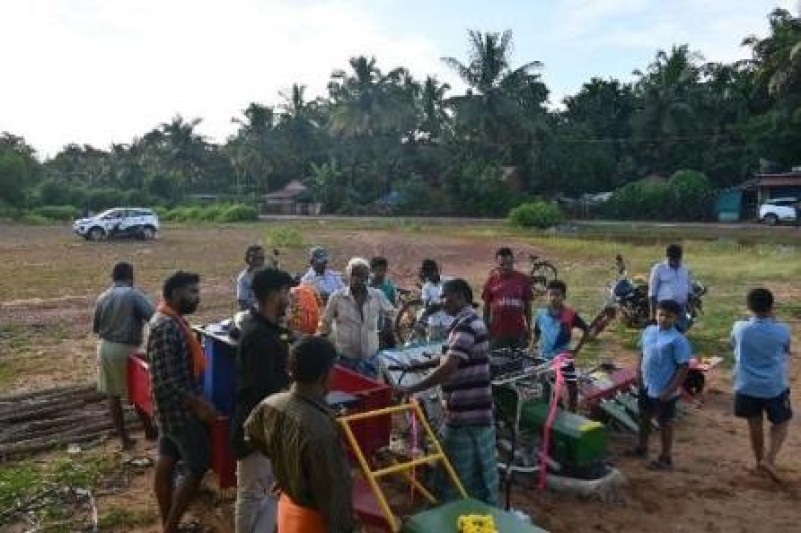
Poultry and Beekeeping
- Distributed 4,830 chicks to 311 SHG women
- Distributed 104 honeybee boxes to selected households, providing additional income streams
FPO and Cooperative Strengthening
- Developed 3 functional FPOs for vegetables, fisheries, and areca processing
- SHG women linked to Pragatimitra FPO for value addition in areca nut and marketing
- Business planning support extended with NABKISAN and NABARD assistance
Innovation, Technology & Capacity Building
- CRP Network (Community Resource Persons) actively supported SHGs in record-keeping, social mobilization, and financial tracking
- Training on digital literacy, bookkeeping, and mobile-based enterprise tools provided
- Developed a model for climate-resilient income diversification through integrated interventions
Community Impact & Success Stories
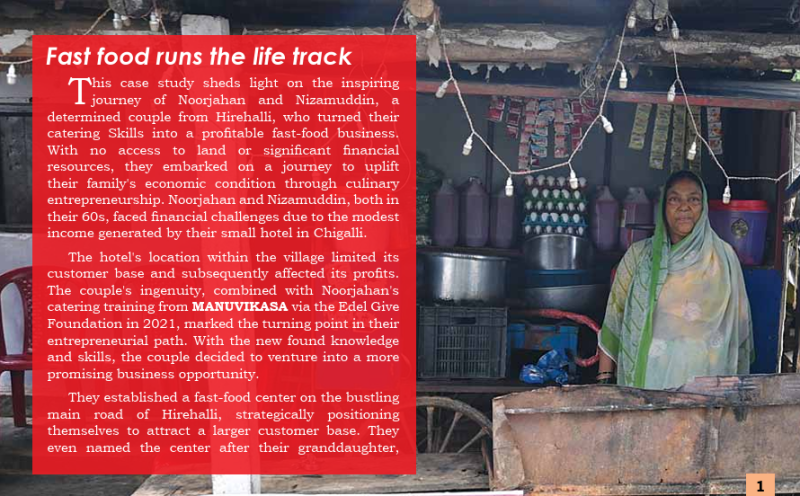
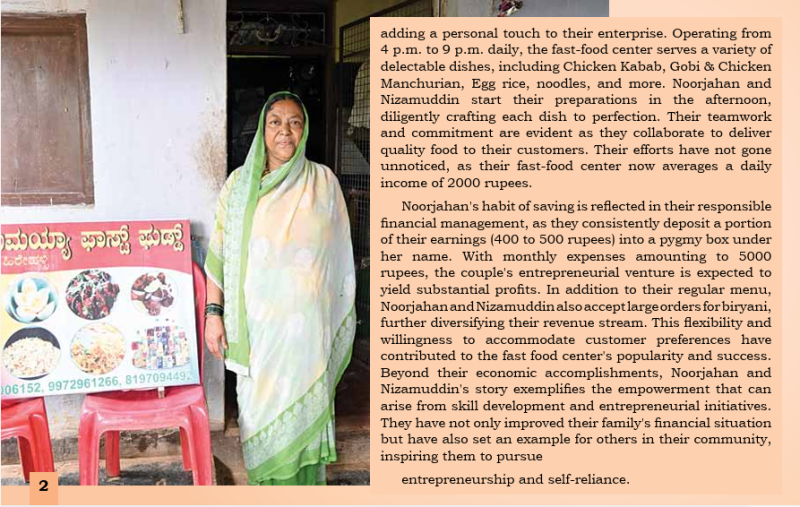
The project has transformed communities in more ways than one. From Noorjahan’s bustling eatery “Baby Sumayya Fast Food” in Hirehalli, built on catering training, to the self-reliant SHGs now running profitable grocery businesses under cooperatives during COVID-19—every woman empowered is a beacon of community transformation.
Women now not only access credit but also claim rights over common lands, lead federations, run businesses, and participate in local governance. Alcoholism has been curbed in some villages, and children’s school dropouts have reduced due to improved household incomes.
Future Vision (2025-2027)
As the project progresses, MANUVIKASA will:
- Extend farm pond and lake development to unreached villages
- Scale vocational training to 5,000 women and youth
- Strengthen SHG-FPO linkages for sustainable agri-business ecosystems
- Conserve an additional 60 million liters of water and protect 160 acres of community forest
- Drive climate adaptation through kitchen gardens, indigenous seed conservation, and organic farming
